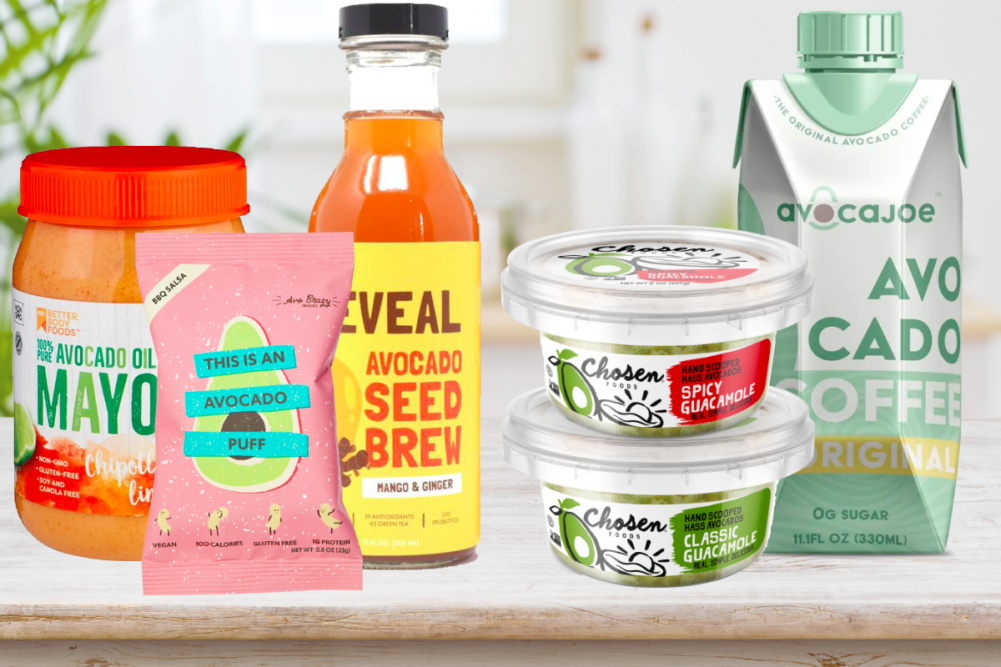CHICAGO – When St. Louis natives Scott Wibbenmeyer and Sharon Colona moved to California in 2017, they found the perfect location in Temecula. The only caveat with the property is it came with an avocado grove of more than 500 trees.
The avocado tree (Persea americana) grows best in humid, tropical climates with well-draining soil. The avocado fruit is botanically a large berry containing a single large seed. About a third of the world’s supply of avocados is grown in Mexico, which was 2,184,663 tonnes in 2018, according to the Food and Agriculture Organization (FAO) corporate statistical database. The United States ranked eighth in production with 168,528 tonnes grown in 2018. Most of the avocados grown in the United States come from California. Florida and Hawaii also are home to some groves.
“We became avocado farmers,” Ms. Colona said. “I spent a fair amount of time researching everything I could about avocado groves and how to maintain them. If we were going to do this, we were going to do it right.”
During her research Ms. Colona discovered an article on the benefits of avocado leaf tea. Her curiosity got the best of her and she delved further into the topic.
“While the avocado is known as a superfruit with numerous health benefits, researchers are finding the leaves might be the most beneficial part of the avocado tree,” she said. “It seems it has been used for medicinal purposes for thousands of years and folklore suggested it had helped everything from the common cold to kidney stones.
“On the very next trip to our grove, I picked more leaves than avocados and decided I was going to try this magic tea. I assumed it must taste horrible if it is truly that beneficial. As it turns out, it’s one of the best teas I ever tasted. The natural flavor is earthy and rustic with a smooth finish. The aroma resembles the bouquet of the avocado grove.”
The couple spent the next few months working with tea makers and testing facilities. They wanted to ensure the process for picking, storing and milling the avocado leaves kept the integrity of the properties of the leaf.
“We found the perfect process to create delicious tea and have patented it,” Mr. Wibbenmeyer said. “A 100% all natural and biodegradable single-serve pyramid bag provides ease of preparation while keeping the natural flavor and nutritional benefits of the avocado leaf.”
These avocado farmers are not the only ones who want to make more use of the avocado tree and its fruit. That large seed in the fruit also has functional value.
“We want to change the way people look at resources,” said Sheetal Bahirat, chief executive officer of Hidden Gems, Philadelphia, a startup beverage company founded by two food scientists determined to turn upcycled ingredients into better-for-you drinks. “Our mission is to create beautiful, environmentally safe and socially responsible upcycled products by discovering the hidden value in the food people would normally call trash.”
The first innovation is Reveal, a ready-to-drink beverage made from avocado seeds. It contains 15 calories and probiotics from apple cider vinegar. It has three-times the antioxidants found in kombucha. The non-carbonated beverages come in grapefruit lavender, mango ginger and rose mint flavors. The suggested retail price is $3.79 for a 12-oz bottle.
“One day, while making guacamole, we were amazed by the amount of ‘waste’ that was created in the process,” said Zuri Masud, chief operating officer. “We were surprised to find that more than half of the antioxidants in the avocado are hidden in the seed and the US throws away 15 million lbs of them each week. We decided these gems were no longer trash.
“We developed a patented process that extracts the maximum nutritional value and ensures the seeds become compostable. By brewing them and making a tasty beverage we deliver the benefits of two avocado seeds in every bottle.”
The company is producing Reveal at the Rutgers Food Innovation Center, Bridgeton, NJ, a US Department of Agriculture-certified facility. They can make up to 15,000 bottles per day.
Beyond the leaves and the seeds, there is the actual fruit. Its creamy green flesh with rich, buttery taste renders it delicious as is or as the dominant ingredient in guacamole.
Avocados contain more fat than any other fruit or vegetable, which has innovators exploring its use in varied applications. That’s because the fat they contain is composed mostly of monounsaturated fatty acids and is free of cholesterol, making avocados a source of “healthy fats.”
A growing number of companies extract the oil from the fruit to make 100% pure avocado oil. The condiment and cooking oil has a neutral flavor and high smoke point, making it attractive for high-heat sautéing and flame grilling. That oil also is used to make dressings and spreads.
Avocado oil is almost 70% oleic acid, a monounsaturated omega-9 fatty acid that provides numerous health benefits, including boosting brain function, promoting fat burning, lowering cholesterol and promoting skin repair, according to Avocajoe Brands Inc., Las Vegas. The company uses avocado oil to make Avocajoe, the next generation of butter coffee.
“Our final formula is the result of years of development and testing,” said Clint Bondzuk, founder and CEO of Avocajoe Brands. “We’ve perfected dairy-free butter coffee and made it taste amazing.”
The vegan beverage comes in 11.1-oz shelf-stable packages, with each carton containing 12-grams of avocado-sourced fat. The beverage is also sugar free, as it is naturally sweetened with monk fruit extract.
The innovators at The Naked Market, San Francisco, are turning the avocado into a puffed salty snack. New AvoCrazy puffs are gluten-free, vegan and non-GMO. They are made with avocado pulp, avocado oil and avocado powder.
“Avocados are one of America’s favorite foods yet, aside from avocado toast and in salads, there has been very little innovation in how we enjoy avocados,” said Harrison Fugman, CEO.
That is changing.





